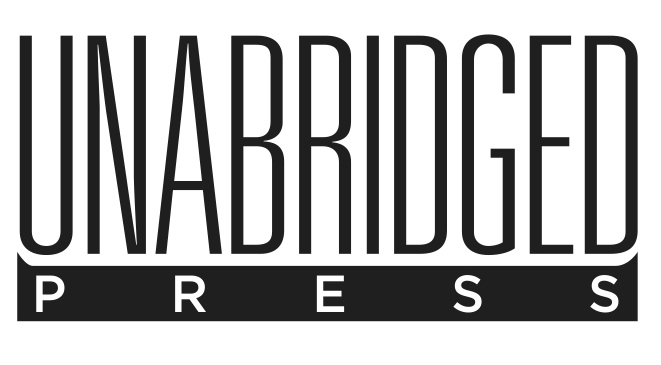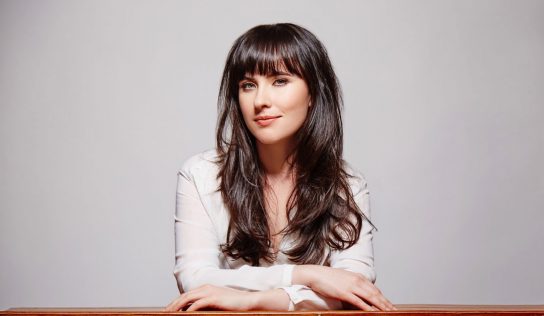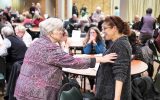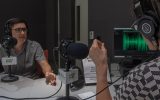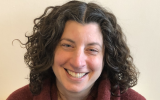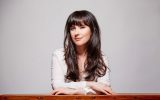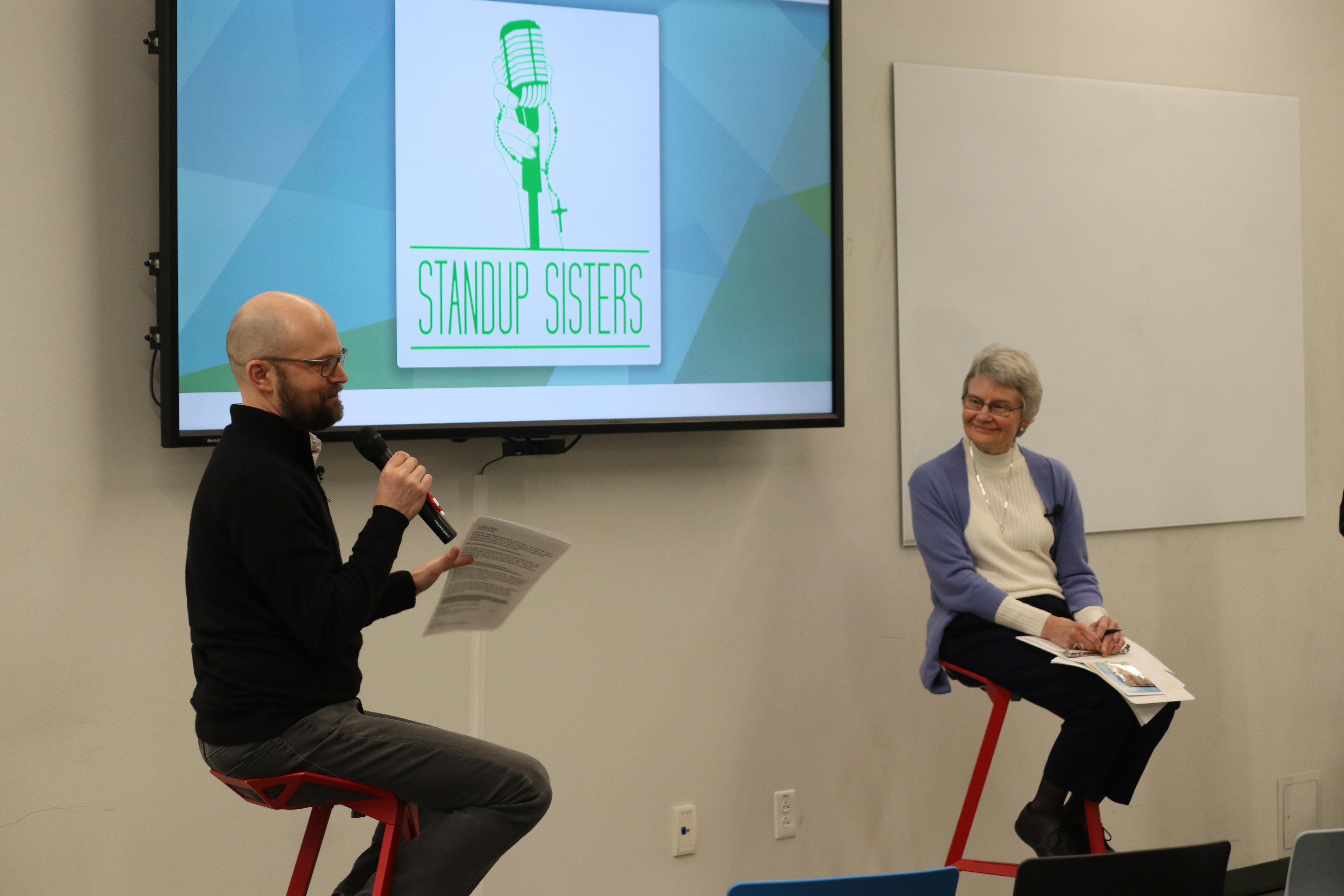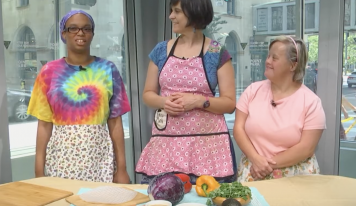Christianity has a mixed history when it comes to the environment, with Biblical interpretations ranging from utter dominance to strict conservation. Many Catholic women’s religious communities tend to take a maternal approach.
“Any land is a holy place,” says Sr. Sally Witt, of the Sisters of St. Joseph of Baden. “The
At Standup Sisters: Green Habits 2 on March 11, Unabridged Press premiered short films of Catholic sisters exploring the healing power of nature. The event was live-streamed on Facebook from the Center for Media Innovation at Point Park University and is now available on YouTube (above).
Witt, a historian of Catholic sisters (pictured above) offered context about what’s often called eco-spirituality or eco-justice in women’s communities. Her community in Baden, an Ohio River town in Pennsylvania, is on an 80-acre campus. The Motherhouse grounds are home to beehives, chickens, and organic community gardens that fuel its EarthTones Ministry. The sisters sell honey and related natural
“I understand the sense of, ‘Yes, we wanted those skies to be smoky because that meant we were getting paid, and I understand where people were coming from in that,” Witt says. “At the same time, it’s a whole long-range thing. Yes, skies are smoky and that means money is coming in, or yes, we’re starting a new cracker plant and so that will create jobs in a place where jobs are certainly needed. And yet, you’re ruining peoples health in the process.”
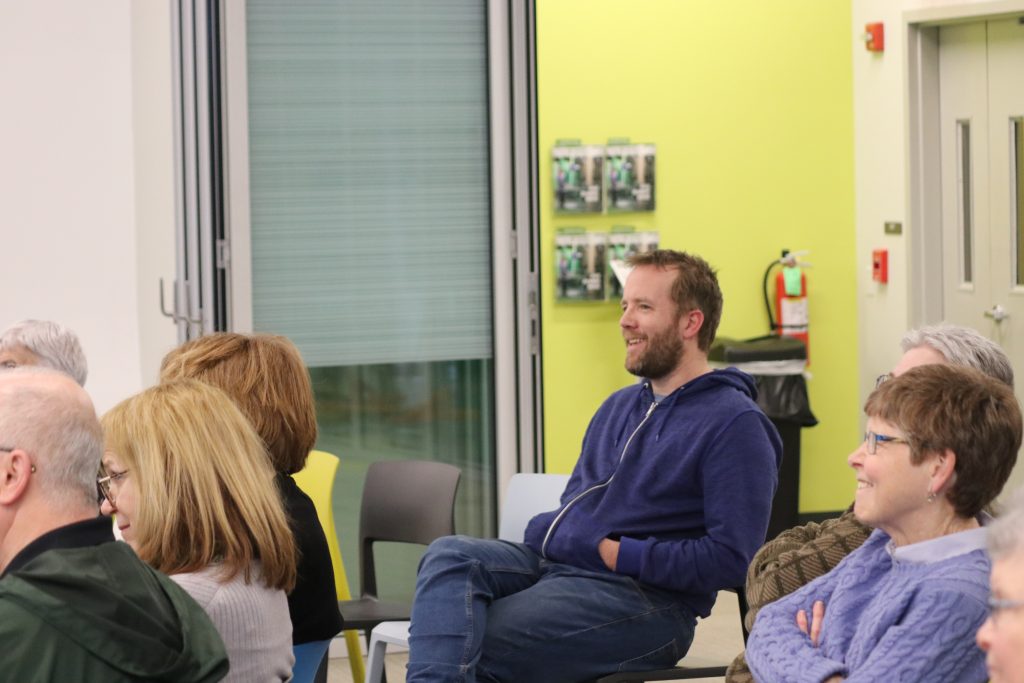
Energy reporter Reid Frazier joined the conversation, offering his view on the challenges faced by anyone seeking environmental change.
“What are the hurdles to a different kind of environmental vision for our society? I think a lot of that has to do with who has power in our society and who controls capital. And he or she who controls that seems to very often get their way in our society,” Frazier says. “Our state has sort of been set up to maximally extract whatever we can to feed it to the broader economy. Today it’s not steel so much anymore, it’s natural gas. And
Frazier asked Witt how she squares the Biblical interpretation of domination of the environment with her community’s values.
“We’ve gone with the domination and look where it’s gotten us,” said Sr. Witt. “So we’re trying to look at creation. You’re very correct not everyone is looking at it in the same way. But those of us I guess you would call ‘green sisters’ and many of our friends, neighbors are looking at this. And you know what? It really isn’t just another way of doing things. It’s really
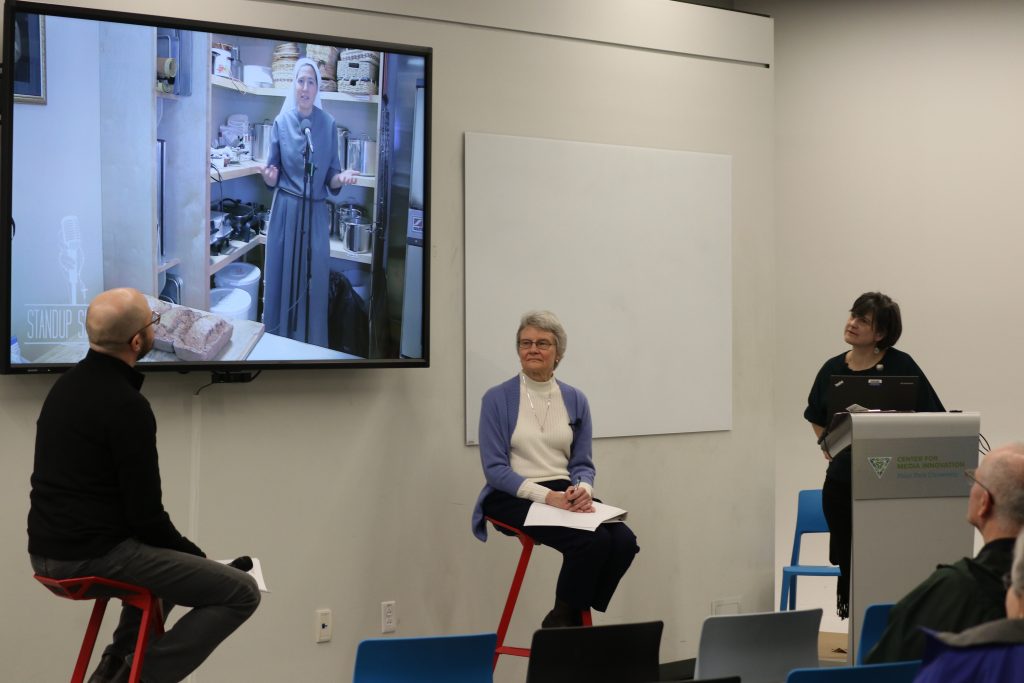
Sr. Witt welcomed the audience to join the Sisters of St. Joseph for an Earth Day celebration on April 13 in Baden. Visitors can explore nature trails, see community gardens and chickens, and learn how honeybees help sustain the Motherhouse

